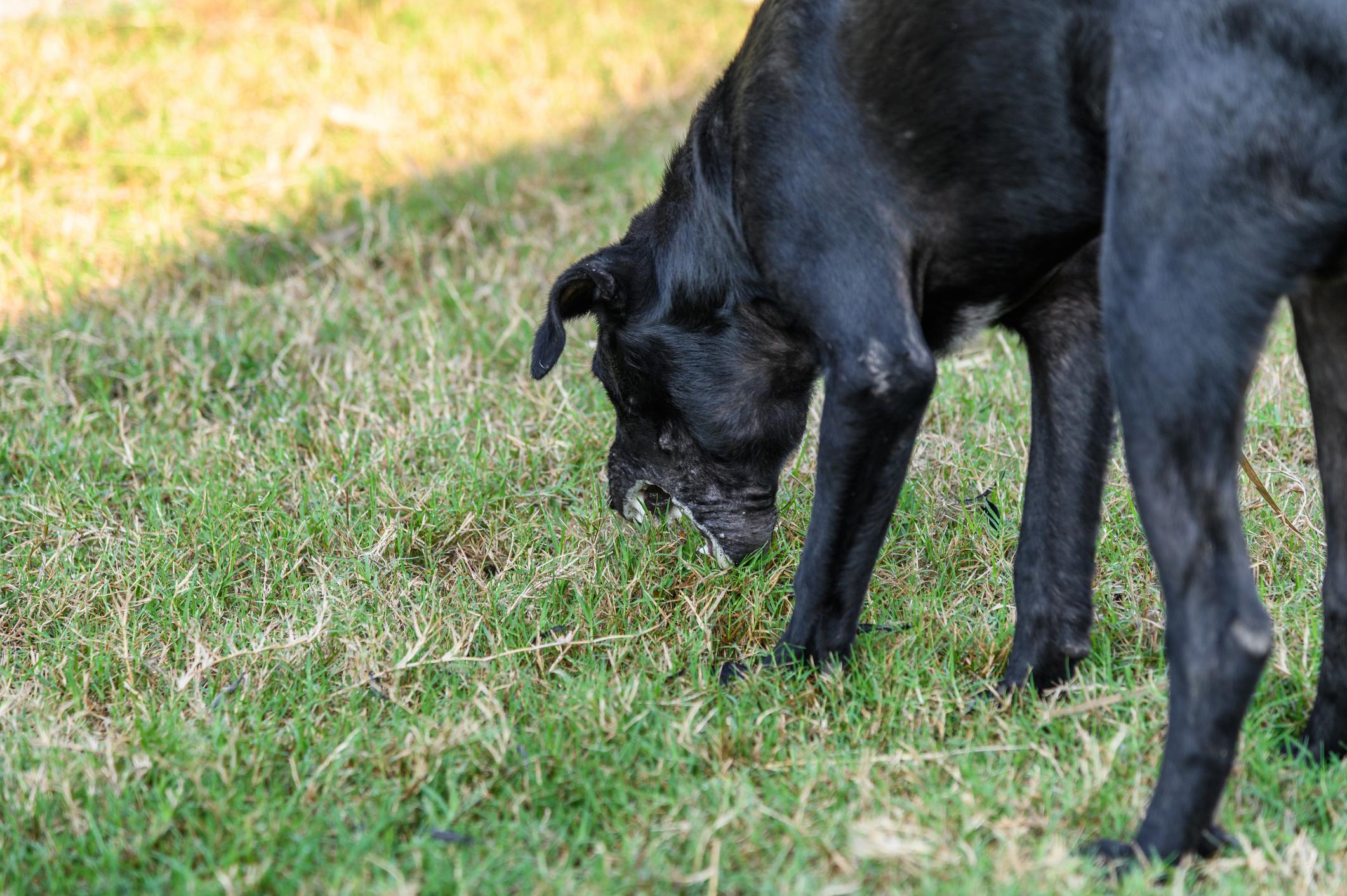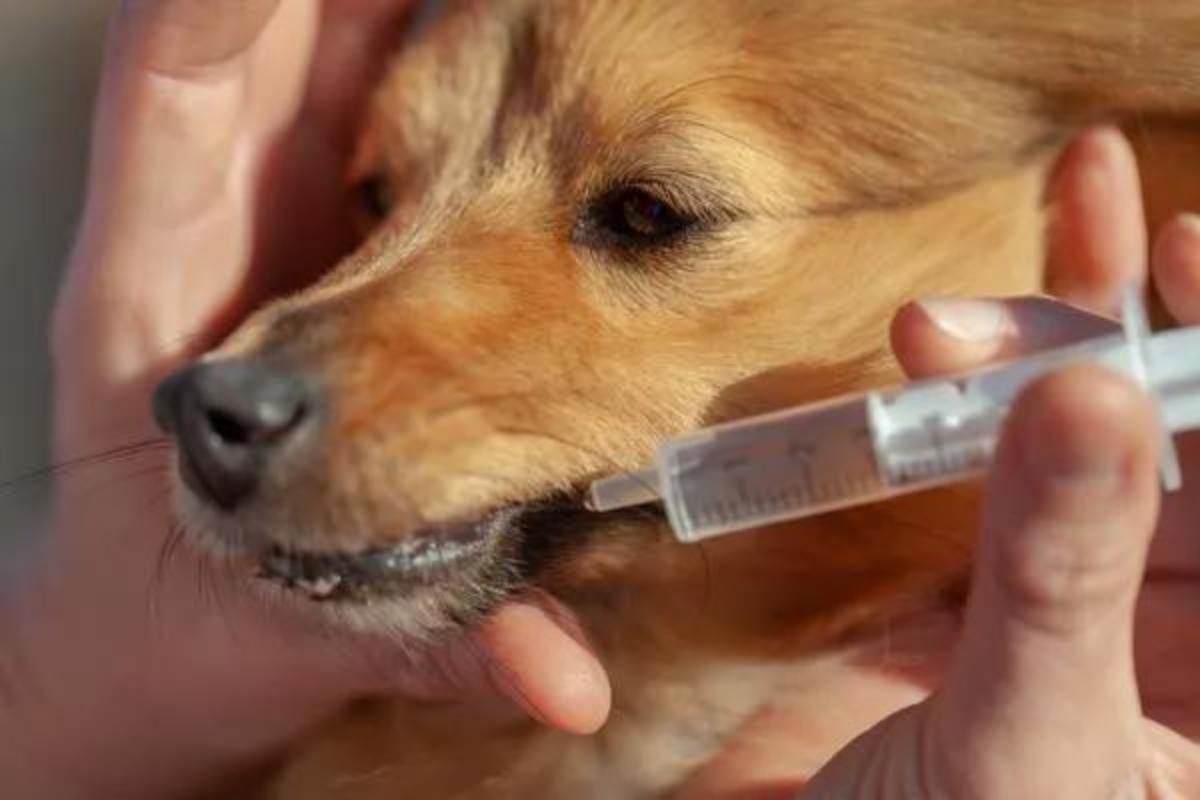Rat Poison in Dogs - Symptoms and Treatment

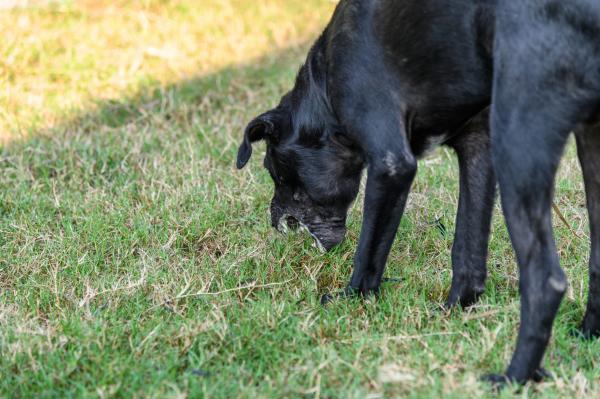

See files for Dogs
While cats are known for their curiosity, dogs are no less interested in exploring their environment. Unfortunately, this can involve ingesting substances which can cause them considerable harm. While guardians should do all they can to avoid exposure to pesticides such as rat poison, it is possible they will become exposed to them for one reason or another. When this happens, we need to know all we can about how to recognize symptoms of rodenticide poisoning in dogs and what we can do to treat it and avoid the death of the animal.
At AnimalWised, we look at the symptoms and treatment of rat poison in dogs. We understand the dangers involved in a dog ingesting rat poisoning and how we can best prevent a dog ingesting it in the first place.
Is rat poison toxic to dogs?
Rat poison is a type of rodenticide. Although rodenticides are used to kill various rodents, using it as rat poison is one of the most common. They are used routinely by both public health services and private residents to control rodent populations. For this reason, it is possible your dog will come across rat poison if we are in an area previously unknown to us or even find it if we leave it in the home.
The main reason for controlling rat populations is because they are vectors of many diseases. Exposure to rats can lead to contracting rabies, tularemia, botulism, bubonic plague and foot-and-mouth disease, among many other diseases.
The ideal pesticide would be one capable of generating toxicity in the target species, but without harming individuals of other species. Unfortunately, this is not the case with rat poison. Some rats are relatively large in size, so they will need a strong rodenticide to kill them. Depending on how much is ingested by a dog, it can be sufficient to kill them in turn.
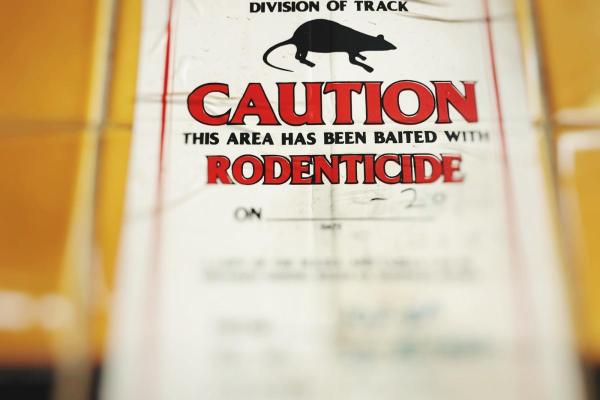
Symptoms of rodenticide poisoning in dogs
Before explaining the symptoms of rodenticide poisoning in dogs, we must clarify that there are two main groups of rodenticide:
- Non-anticoagulant rodenticides: their mechanism of action is not related to the coagulation cascade (the steps the body takes to stop bleeding). Due to their high toxicity and the fact they do not have an antidote, the use of many of them has been prohibited.
- Anticoagulant rodenticides: they act by altering the coagulation cascade. They produce greater toxicity in rodents, but are less harmful to domestic animals. In addition, they have an effective antidote, which is why they are the most commonly used today.
Next, we look at the symptoms each of these types of rodenticide can cause.
Symptoms of non-anticoagulant rodenticide poisoning
Within this group are strychnine, bromethalin, cholecalciferol, fluoroacetate, alphanaphthylthiourea and zinc phosphide.
The main clinical signs produced by these rodenticides in dogs are:
- Neurological signs such as seizures, hyperexcitability, hypersensitivity to external stimuli and polyneuropathies
- Digestive issues such as nausea, vomiting, diarrhea and anorexia
- Dyspnea (respiratory distress)
- Muscle tremors, muscle stiffness and paralysis
- Edema
- Respiratory failure
- Death
Learn more about what digestive problems can say about your dog's health with our guide to vomiting and diarrhea in dogs.
Symptoms of anticoagulant rodenticide poisoning
Within the group of anticoagulant rodenticides we find warfarin, brodifacoum, difenacoum, bromadiolone, chlorophacinoma, difacinone and pindone. All of them are characterized by blocking the action of vitamin K and delaying coagulation time.
As a consequence, the following clinical signs appear:
- Bleeding: from the nose (epistaxis), mouth (hemoptysis), gums, urine (hematuria), feces (melena) and skin (bruises, ecchymoses, or petechiae). Hemorrhages can also occur in the thoracic cavity (causing shortness of breath and coughing), in the abdominal cavity (causing abdominal distension) and in the cranial cavity or spinal column (causing neurological signs).
- Anemia: concurrent with fatigue, weakness, shortness of breath, pale mucous membranes. Learn about different types of canine anemia with our guide to hemolytic anemia in dogs.
- Toxic shock: in case of severe poisoning, anticoagulant rat poison can cause toxic shock and death.
It is important to mention that the effect of anticoagulant rodenticides is not immediate, but has a delayed effect. The symptoms in case of poisoning by anticoagulant rodenticides can take between one and seven days to manifest in the dog.
The lethal dose of rat poison in dogs is variable. In toxicology, the lethal dose is usually represented by the term LD50 (median lethal dose), which varies depending on the compound, the species affected and whether the exposure is single or repeated. For example, the LD50 of warfarin in dogs is 5-50 mg/kg in a single dose and 1 mg/kg in repeated doses.
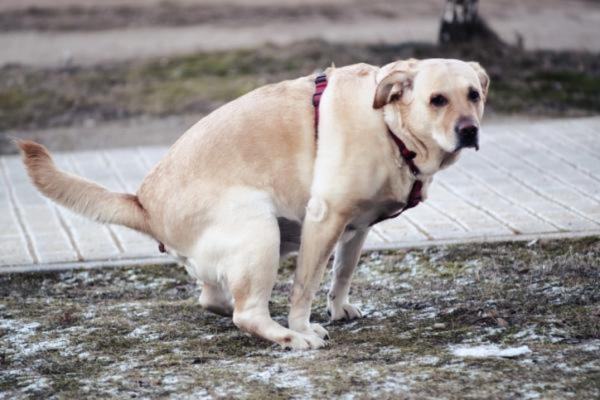
Rat poison in dogs method of action
In dogs, the most common route of rat poison poisoning is accidental ingestion. This can be caused by direct ingestion of the rodenticide or by ingestion of a rat or mouse that has come into contact with the rat bait.
Despite this, there are other routes of exposure that are also possible:
- Cutaneous route: by contact with the skin.
- Inhalation route: in dogs it can occur when they sniff around certain types of rat bait.
Rat poison in dogs treatment
Rodenticide poisoning is a medical emergency that requires immediate veterinary treatment. Whenever you detect symptoms of rat poisoning in dogs or simply suspect the possibility it has been ingested, it is important you take them to a veterinarian as soon as possible. Read the following instructions carefully and act as quickly as possible:
- Do not try to make your dog vomit: some people may think to use home remedies such as salt or coffee, but their use can be counterproductive, especially with certain types of poison. This practice should only be carried out by a veterinarian if considered appropriate.
- Do not give your dog any food: some people think they should give milk or raw egg to a dog which has ingested rat poison. These home remedies are not effective against poisoning and can cause aspiration pneumonia if given forcibly.
- Go immediately to a veterinary center: immediate treatment can be the difference between your dog dying and surviving. If you need to go by car, it is best for one person to drive while another watches the animal.
- Find out the type of rodenticide: wherever possible, take the rat poison container with you or provide evidence of the type of rat poison used as it can inform the veterinarian's treatment plan.
Once at the veterinary center, the team that cares for your pet will decide how to proceed. This will depend on the substance ingested and the time that has elapsed since the poisoning. The treatment plan may include:
- Decontamination treatment: by inducing vomiting, gastric lavage or administration of adsorbents (such as activated charcoal) and saline solution. After administration of activated charcoal, it is normal for the animal to pass black stools for several days.
- Supportive treatment: establish a fluid therapy plan, give respiratory support if necessary (with oxygen therapy or mechanical ventilation), keep the animal in a calm environment and protect them from strong stimuli.
- Treatment of associated symptoms: anticonvulsants, muscle relaxants, blood transfusions, thoracocentesis, etc.
- Antidote: as we have already mentioned, anticoagulant rodenticides have a specific antidote in the form of vitamin K1. It is initially administered subcutaneously. Oral treatment should then be continued for 1-6 weeks (depending on the compound ingested).
Rat poison is not the only substance which can serious harm your dog's health. Dsicover more with our article on plants that are toxic to dogs.
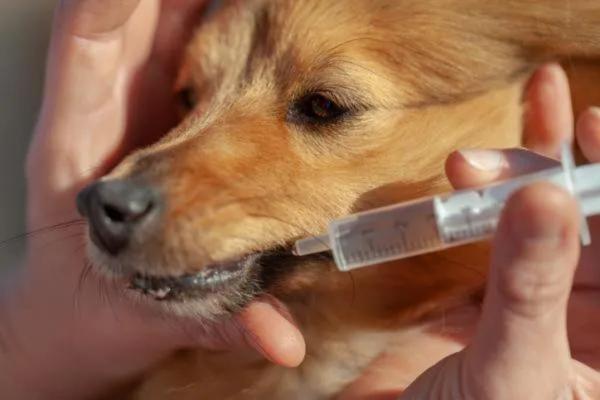
How to avoid rat poison in dogs
The prevention of this type of poisoning is based on a simple premise: preventing dogs from having access to rodenticides. This means preventing them from coming into contact with these compounds through any of the possible routes of poisoning (ingestion, inhalation or skin contact).
Below, we mention some of the preventive measures that you must take into account to prevent rodenticide poisoning:
- In case you need to use these pesticides, place the ray bait inside specific bait holders and place them in places to which your dogs or other animals cannot access.
- Keep or store pesticides in a closed place that animals cannot access.
- Pay attention during walks to the possible presence of rat poison in the environment and prevent your dog from approaching any you do find. Rat bait is usually placed in traps or inside bait holders (they are usually small black or gray boxes).
- Prevent your dog from developing hunting behavior towards rodents or coming into contact with dead rats or mice.
- Prevent your dog from wandering alone or unattended in unknown places.
Remember the importance of urgently going to a veterinary center whenever you suspect that your dog has come into contact with a rodenticide or shows signs compatible with this type of dog poisoning. The speed with which the treatment is established will be decisive in the prognosis of the animal.
Check out our related video below to find other common household items that can kill your dog:

This article is purely informative. AnimalWised does not have the authority to prescribe any veterinary treatment or create a diagnosis. We invite you to take your pet to the veterinarian if they are suffering from any condition or pain.
If you want to read similar articles to Rat Poison in Dogs - Symptoms and Treatment, we recommend you visit our Other health problems category.
- Ayuso, E. Toxicological Emergencies. Official College of Veterinarians of Madrid.
- Daza, M.A., & Ayuso, E. (2004). Most frequent intoxications in small animals. Rev AVEPA, 24(4), 231-239.





